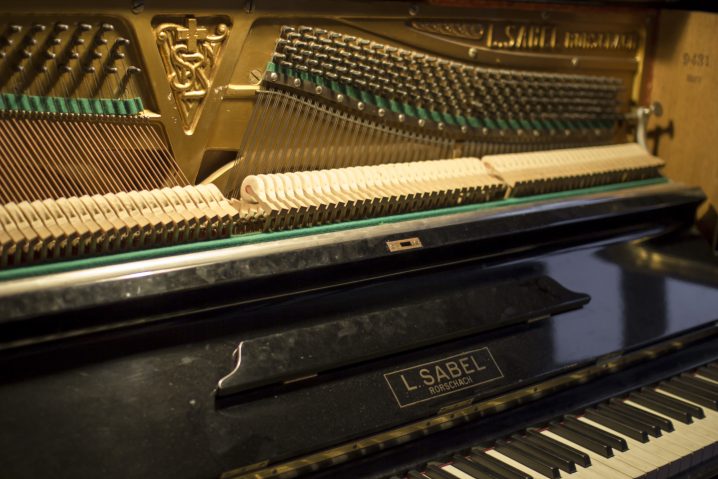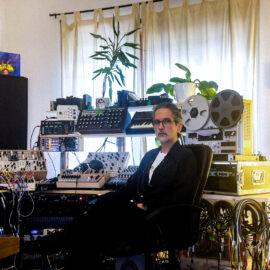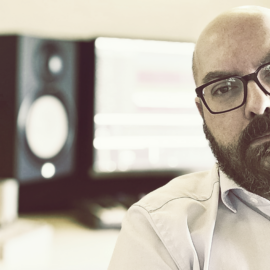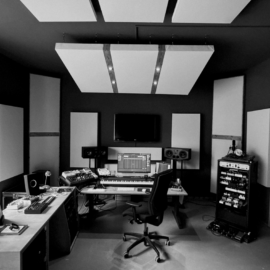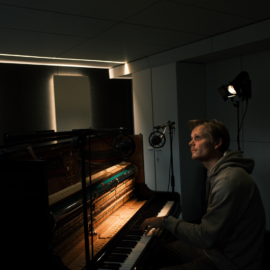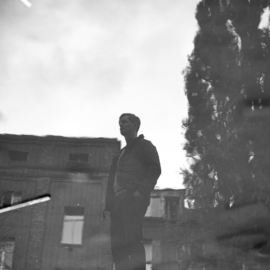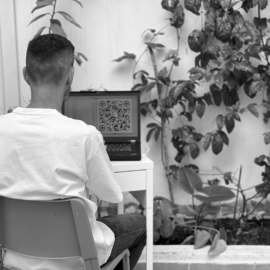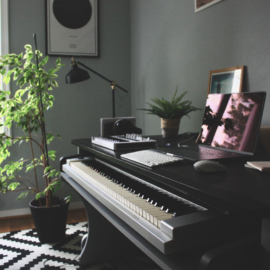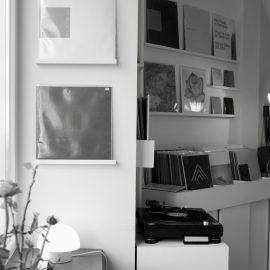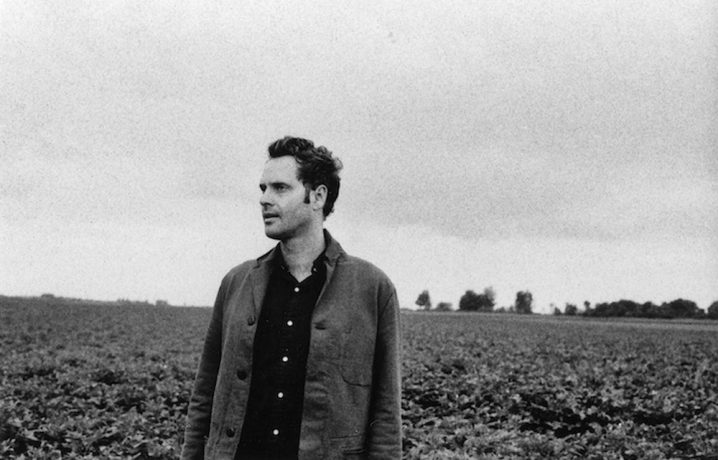
Lets start at the very beginning. Can you tell us how you got involved in composing, and what was your very first piece of gear?
Everything started when I starting writing music with Sara Lov and we formed our first group Devics. I started playing bass and guitar and bought an old Tascam 4 track. It was my first attempt at recording… and i was immediately hooked. I still love the sound of these old machines and of analogue tape. These were really my formative years of music learning to trust my instincts and a time of discovery. It was not until I moved to Italy that I started working on my solo piano work which really let me into composing.
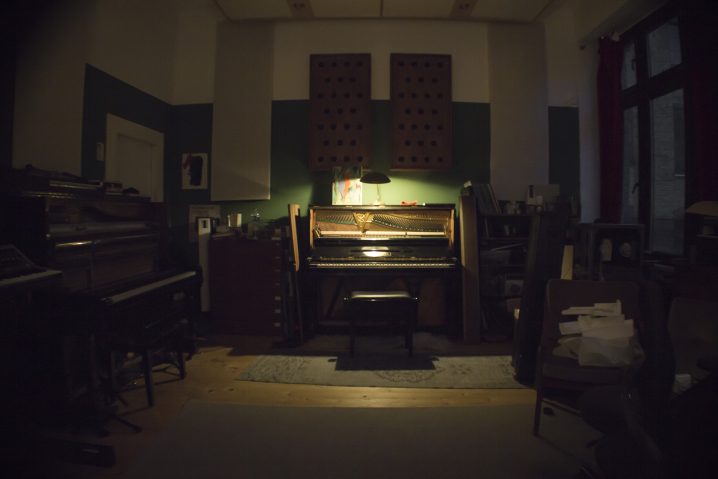
How many different studio iterations have you gone through, and what does your final setup look like right now?
I have had a few incarnations of my studio… each one slowly progressing to a more professional situation. But I really started in a room in my flat… then eventually had a dedicated space that was more a glorified closet. I realized pretty early on that I needed to start collecting recording gear and learn about it if I was going to find the sounds I heard in my head, so over the years I have collected a lot of vintage mics and pre amps. When I moved to Italy, I again worked out of my house and recorded both of first piano records in the living room with old tile floors. I eventually moved my studio into an old farmhouse in the country side in Italy where i had my first dedicated studio set up. It was really special space… an old animal stall that I treated acoustically but kept the old curved ceiling… it actually sounded great and it was dead quiet all around me. It was still a working farm so each day when I would show up to work I would have small chats with the local farmer.
When I moved to Berlin I had a set up in a separate room and then moved into a great studio space in Kreuzberg in an old factory loft… where I have some friends next to me like Johann Johannsson and Hildur Gudnadottir. It’s my favorite studio space I have had… nice acoustics, tons of light, and really inspiring people around me.
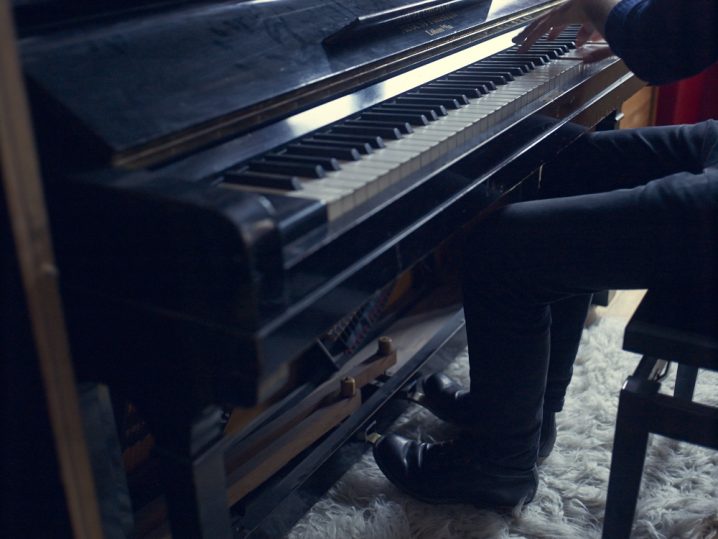
What is your favorite piano?
I became really attached to this old swiss Sabel piano from the 1930s that I had in Italy… so much that I brought it back to Berlin myself! but I think if I could afford to have any piano I would love to have a Fazioli. It’s an incredible instrument that is soft and full and has the most incredible bass. Or a Boesendorfer Imperial piano!
Tell us about your favorite piece of hardware.
I’m always experimenting with different pieces of gear… tape delays, pedals, compressors. But probably the one piece of gear that I will always use on every recording is 1072 neve pre amps. Nothing sounds as warm and smooth as these… they make everything sound the way I want them to. But I also don’t try to get too hung up on gear… I just try to work with what I have and make it sounds interesting.
And what about the software that you use for production?
I have been using Pro Tools for ages. It has its limits but I just don’t have time to learn anything else… I’m getting too old!
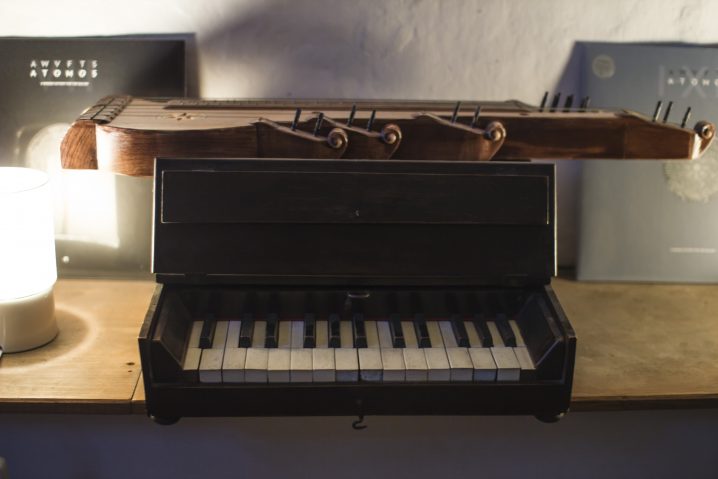
Is there a particular piece of gear that you’re just dying to get your hands on and do you think one day you’ll have it?
I think I would prefer a Boesendorfer Imperial piano from the 1950s above all pieces of gear… or a Fazioli piano. I can work pretty low fi sometimes which I think is always something I try to hold on to. Even if I buy really high-end monitors… sometimes recording something on a cheap old tape recorder is the right sound.
Can you please share some aspects of sound design in your work?
This is something that constantly evolves. I do a lot of sound design elements created running through my pedal board. Right now my favorite new pedal is the red panda particle delay… it has a lot of unexpected elements and it’s hard to control… which I like. I love being surprised by what comes out. Also the Strymon Big Sky is a beautiful sounding reverb pedal that sounds amazing… I will also run a lot of things through my 2 tape delays, A Roland and an old Echoplex… as well as running analogue signals through my ARP synth filters. On the last AWVFTS album we used some GRM sound design tools to manipulate audio… these are great.
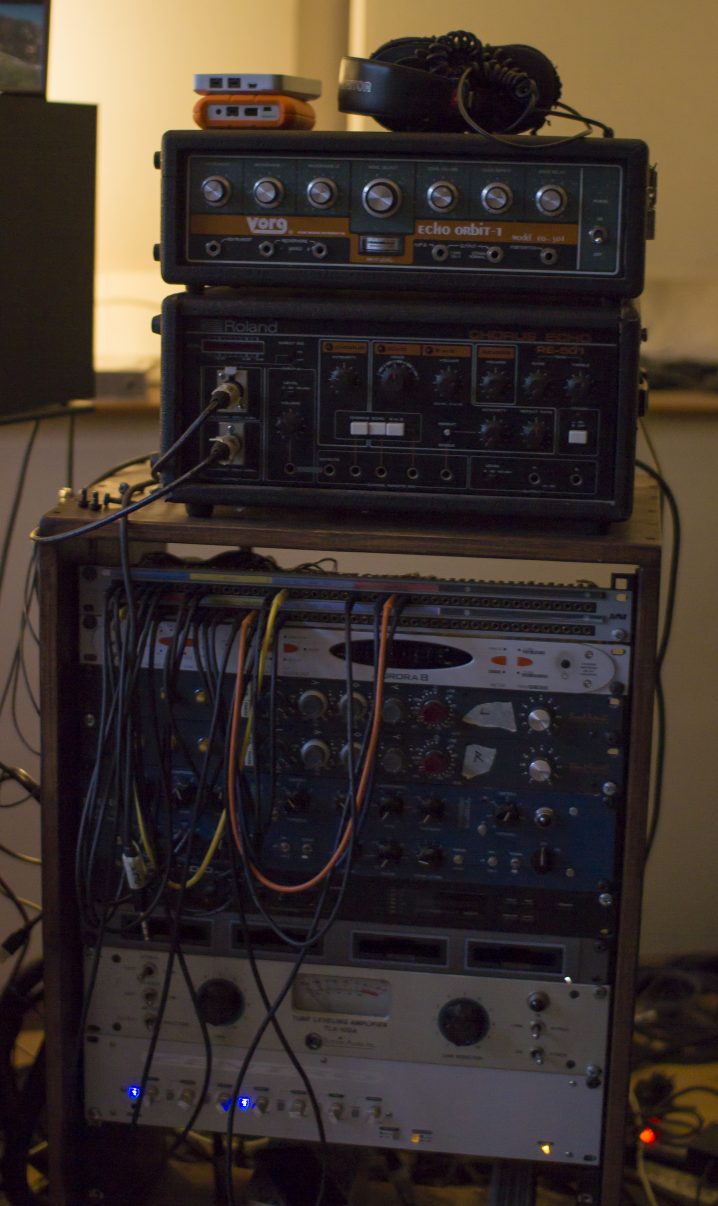
Any particular new techniques that you tried out for your new work on Transparent?
The palette of instruments is pretty minimal… piano, harmonium, bass, some guitar, glockenspiel. Mostly it’s just recording on the right piano. Either my Sabel or my August Forester… or a Blunther grand. So it was not really a lot of new techniques as it was using a lot of piano miking techniques I have learned over the years.
What does your live setup look like, and what do you bring with you when you travel for an extensive tour?
Right now I’m mostly only doing AWVFTS concerts. We rent local pianos for the concert… and my computer set up is running a lot of my own samples off of Ableton and using a controller with a lot of internal processing. I have a Princess Analog delay routing through everything to add more warble and effects, and I’m using a 12 step foot controller that triggers a moog minitaur for my bass sounds.
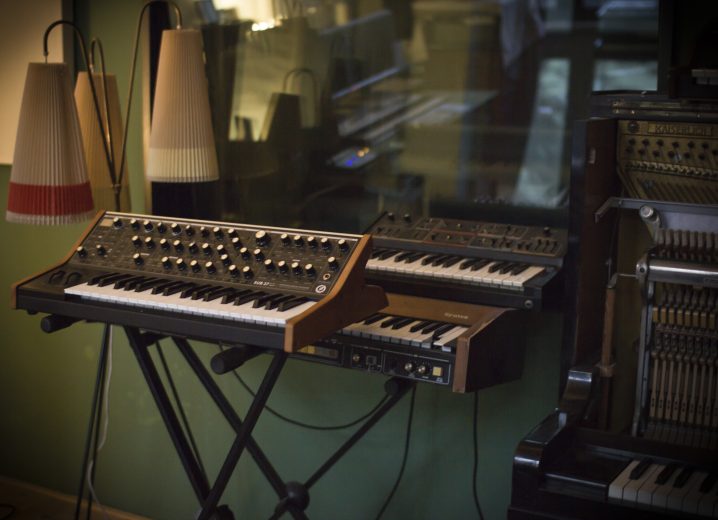
What is the most important environmental aspect of your current workspace and what would be a particular element that you would improve on?
Light for me is vital. I can’t work in a dark studio space. I really need windows… to be able to open them, have fresh air… and see the natural light. I could definitely improve the acoustics of my space… it’s something I would really like to work on.
What can you tell us about your overall process of composition? How are the ideas born, where do they mature, and when do they finally see the light?
It can really happen in so many ways. Most of the time it’s sitting at the piano… spending time improvising. Sometimes I’ll record small parts and come back to them… so if something resonates with me it’s usually worth going back to… But if an idea really stays in my head than I usually know I need to follow it. But I’m always trying to change my process a bit so I don’t get into musical ruts. I recently worked on a film score that was all electronic and this was a really intuitive way of working as I was really recording ideas and collaging them as I did it… it was less about structure and more about sounds and instincts. I was mainly using a vintage ELKA SYNTHEX which is one of my favorite synths. Sometimes when I know I really want to craft something it will take more time… working on strings arrangements and carving them out… using the piano and Sibelius to get it down in notation. But it’s really at the recording process that I understand if it’s all working.
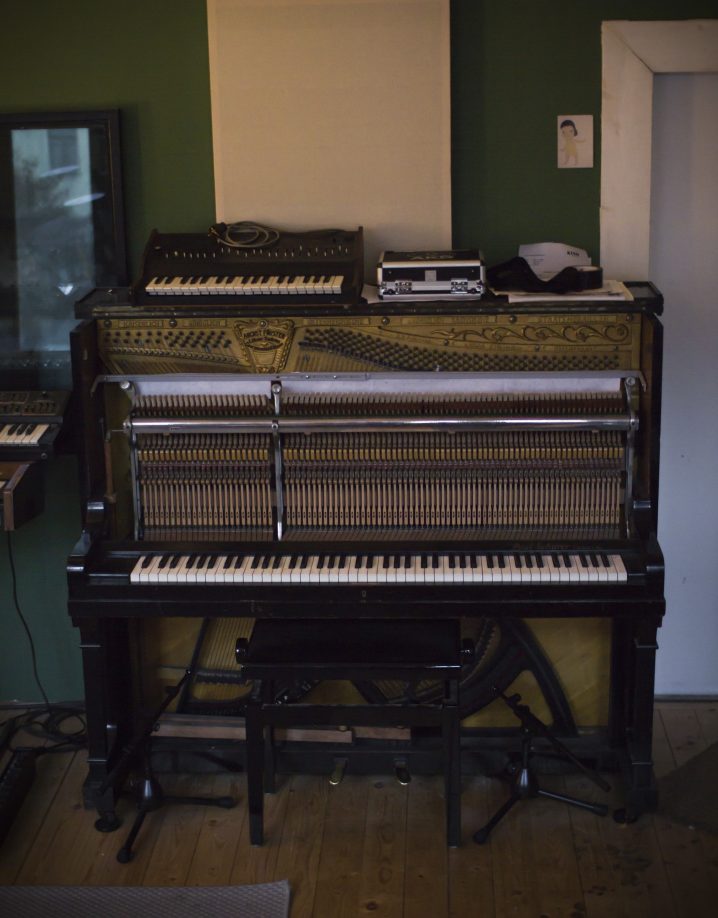
How is composing music for film and television different from your studio albums?
Writing for film is really a different process than writing for my self… but somehow they both inform each other. Ultimately working on a film is a collaboration with a lot of different people… directors, editors, producers… and sometimes all seeing it a little different. So you have to navigate this and find way to keep pure what you do. You rarely have the luxury of time when working on a score, so you really have to follow your first impulse which is also a good thing to learn. But when I’m writing for myself it’s a much slower process and more about digging for the deeper ideas. I like to resonate on things and make sure they feel timeless. I have a lot of material I have never released as I’m waiting too long… and now I feel the moments has passed… or they could not stand up against the great purifier of time.
After the piece is complete, how do you audition the results? What are you reactions to hearing your music in a different context, setting, or a sound system?
I use to audition my records on all kinds of sources… different speakers, car speakers, home. But lately I have really learned to just trust my speakers and let it go. You can really lose your mind always searching for the perfect listening situation, but it’s something you can’t really control. Everyone will have their own systems and a lot of times they are just listening to MP3s on a computer. So I just try to get it to sound good with what I know and let it go.
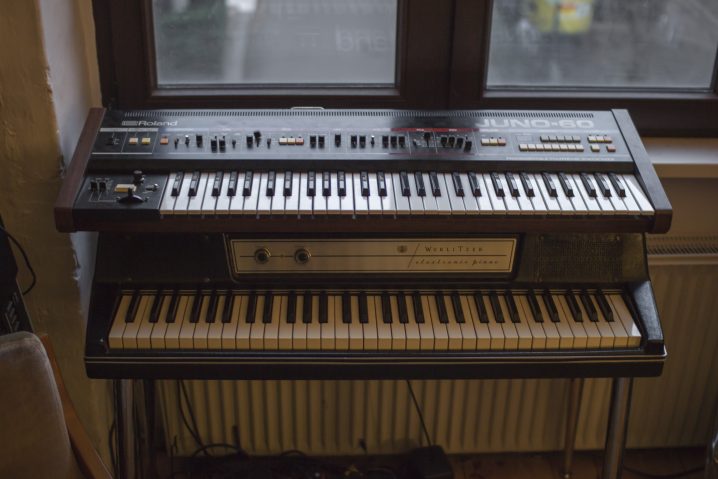
Do you ever procrastinate? If so, what do you usually find yourself doing during those times?
Email and the internet are great for procrastination… I think it’s a really bad habit and I’m trying to make sure I make time where I’m unplugged. If I’m not feeling inspired it’s always better to use the time to study something or better yet read a book!
What gets you inspired?
I think I’m inspired by everything… music, art, books, life, love… it’s all in there. It comes and goes and the best thing you can do is just be in the right place when it comes!
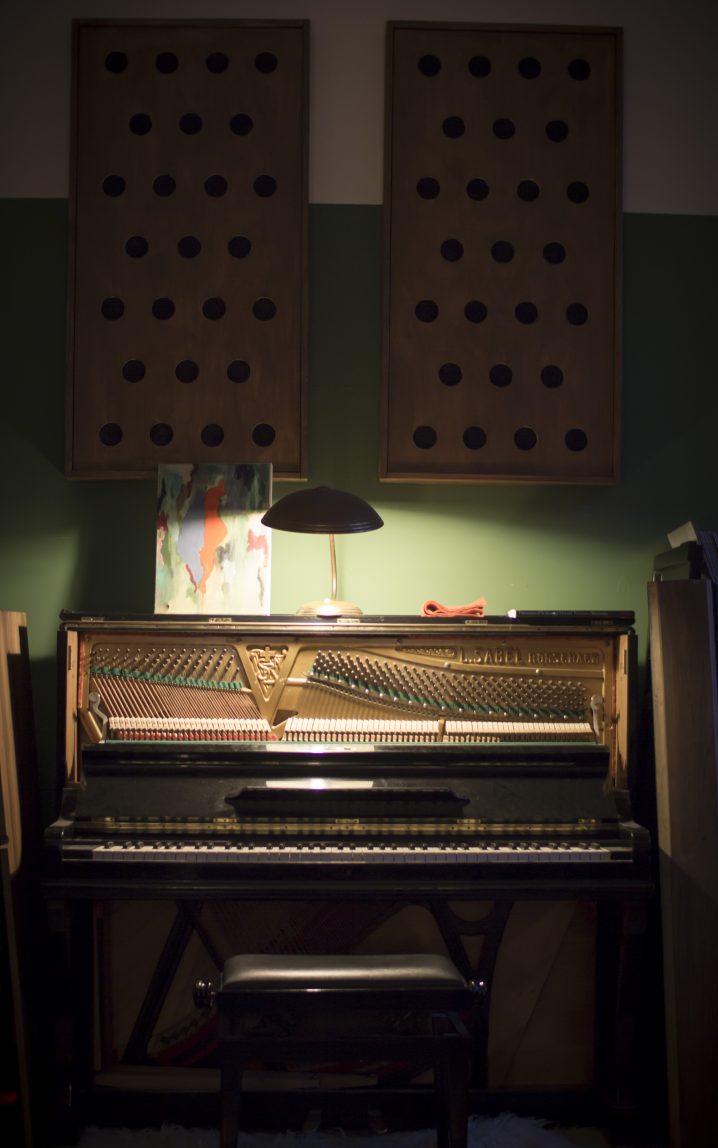
And finally, what are your thoughts on the state of “electronic music” today?
I think it’s a great time for electronic music. A lot of gaps are closing and the lines and types of music are getting so blurred… especially in electronic music… it still feels vital. I think the advancement of audio manipulation has created a whole new world for electronic music… it is not longer just about synths and beats. It crossed into sculpture almost… I’m finding a lot of inspiration these days in it.
